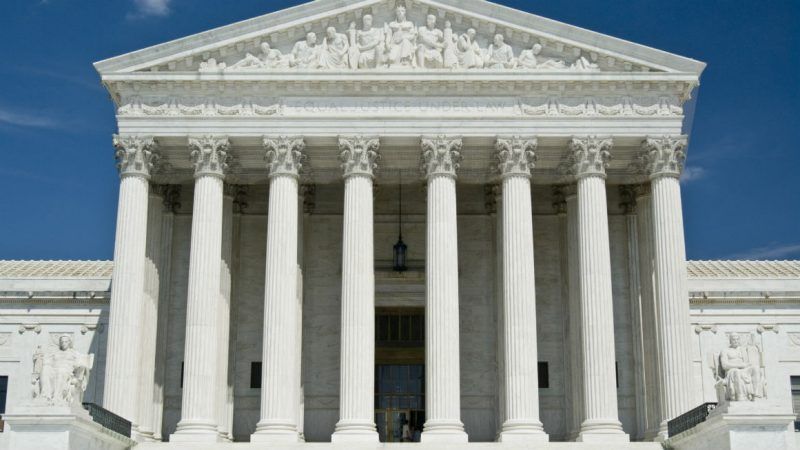The Supreme Court Case That Could Change Immigrant Representation in U.S. Courts
Nine years after his shooting death on the border, the family of Sergio Adrian Hernandez Guereca may finally get a chance to hold the border agent accountable.

The U.S. Supreme Court has agreed to hear the case of a Mexican family suing a U.S. Border Patrol agent who shot and killed the family's teenage son from the U.S. side of the border. The decision could set a precedent for the way foreign nationals are represented in American courts.
CNN reported in June 2010 that Jesus Mesa Jr. responded to reports of human smuggling near the Paso del Norte port of entry, which separates El Paso, Texas, and Ciudad Juarez, Mexico. He approached a small group of Mexican nationals, which included Sergio Adrian Hernandez Guereca, on a bicycle in a culvert on the border. Mesa dismounted his bicycle to detain members of the group. After dragging one of those individuals on the American side of the border, he pointed his gun toward another person on the Mexican side and fired.
FBI Special Agent Andrea Simmons later claimed that Mesa gave verbal commands to stop and retreat. She said that he didn't fire until he was surrounded and being hit with rocks.
Cell phone video from the incident challenges Simmons' claims of Mesa being surrounded.
Shortly after the incident, Customs and Border Protection (CBP) spokesperson Mark Qualia said that Hernandez Guereca had gotten into trouble with CBP before for being involved with smuggling, but was never charged. The lawyer representing Hernandez Guereca's family later said that American officials explained that Hernandez Guereca was not among those throwing rocks. The family also argued that he was playing a game with his friends to try to touch a fence on the American side of the border.
Mexican officials accused Mesa of using disproportionate force and charged him with murder.
The Mexican government submitted a brief in 2015, saying that the United States has a duty to hold Mesa accountable for his actions. The Mexican government also documented 51 shooting deaths involving border patrol agents and Mexican nationals, from 2005 to 2015, to argue that these occurrences are not rare.
The Obama administration, which chose not to extradite Mesa, asked the Supreme Court in 2016 to deny an appeal in the case. The administration wrote in a brief that Hernandez Guereca was not covered by the Fourth Amendment protections against unreasonable searches and seizures because he was a Mexican national with no connection to the United States.
The Supreme Court decided to send the case back to an appeals court in 2017 for another review. The appeals court previously decided that the shooting violated Hernandez Guereca's Fifth Amendment rights, but that he did not have any Fourth Amendment rights, which would have given leverage to challenge the qualified immunity granted to Mesa. The opinion stated that the lower court made an error by granting Mesa qualified immunity on the basis of Hernandez Guereca being a foreign national since Mesa had no way of knowing Hernandez Guereca's nationality at the time of the shooting. The Supreme Court also challenged the lower court to reassess the arguments in light of another case, Ziglar v. Abbasi, involving the qualified immunity of government officials.
The Hernandez Guereca case was eventually dismissed in the lower court.
The Supreme Court accepted the case again on Tuesday. It will explore whether the family of Hernandez Guereca has a legal right to sue Mesa for damages in violation of constitutional rights.
The outcome of the case could set an important precedent for foreign nationals seeking representation in American courts. Depending on the outcome of the case and language used by the court, it is possible that international targets of internet surveillance could also be represented in court. The decision could also extend to civilian victims of drone strikes overseas.
Just last year, a Border Patrol agent was acquitted after fatally shooting a Mexican teenager several times in the back through the border fence in 2012. The Supreme Court's decision in Hernandez Guereca's case will also determine if the family of the 2012 victim will be able to pursue a claim against the border agent.
Related: An agent who harbored strong feelings against immigrants is currently on trial for hitting a Guatemalan migrant with his work vehicle. He's charged with, among other things, depriving the migrant of his freedom "from the use of excessive force" while acting under the color of the law.


Show Comments (33)